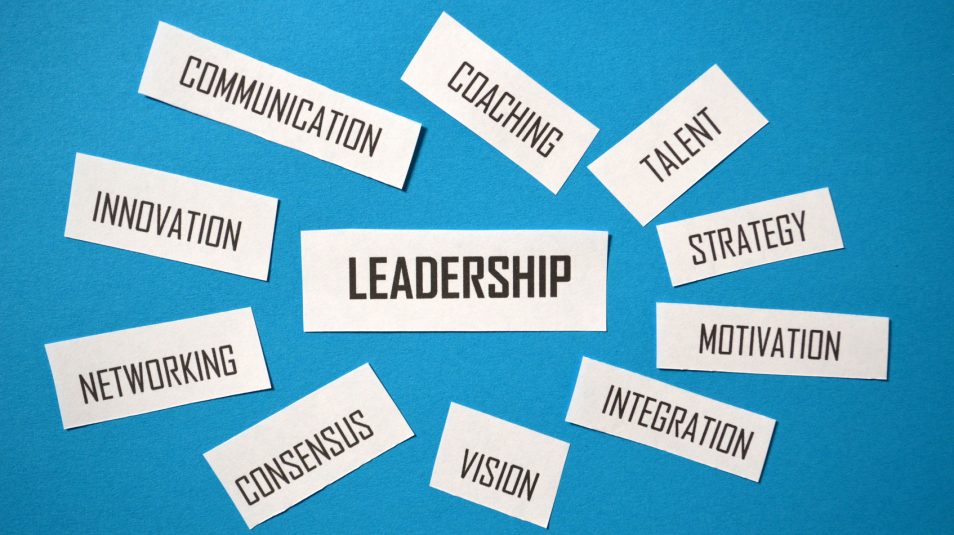Leaders: Stop Being a Role Model

Professional Development
June 17, 2016
Chip Bell
Innovative Customer Service Keynote Speaker
Topics
Leadership, serviceThere are a lot of really cool advantages to being first born. I liked getting to “be responsible” for my younger sister and brother. It likely made me a high achiever. I like that I gained a “gift of gab” by being the only (for a while) child, conversing with my parents before my sister came along. It sure helped prepare for a career as a keynote speaker and trainer. But, I hated hearing my parents say, “You’re the oldest; you need to set the example and be a role model.”
Leaders get that same burden. In fact most leadership schools teach leaders the same admonition I got from my parents—be a role model. The concept has always seemed flawed to me. Now, don’t get me wrong. I am a fan of making sure leaders' actions match their values. I also think leaders should lead with obvious purpose-driven, people-centered values. But, I recall my sister accusing me of trying to be “a junior daddy” when I got a bit too big for my britches and blended a bit of pompousness into my role modeling.
The problem with leaders as role models is the assumption that followers need a parental figure to look up to and emulate. It also implies followers are like younger siblings who, without the model of “goodness,” would stray from an appropriate path and engage in irresponsible acts and attitudes. It represents a limiting view of human potential. Carried to its ultimate conclusion it puts leaders on a pedestal, setting them up to fall for grace when they inevitably make human errors.
Roleness should not be the goal of leaders but rather realness. The definition of “role” means “an actor’s part” or “a function or part played by a person.” The concept of “acting” and “playing a part” suggests the complete opposite of genuine and authentic. I recently saw a wonderful play on Broadway and then waited with my wife to get the autograph of the villain in the play. He was completely differently “on the street” than “on the stage.” Such superb acting is impressive in a play or movie performance; but the same thespian-like prowess in a work performance creates distrust and suspicion.
Lessons from the Chairman
The most famous car in Charlotte, North Carolina, in the ‘70’s was a perfectly restored antique Mercedes-Benz sports car owned and driven daily by Luther Hodges, Jr. He was then chairman of the board of North Carolina National Bank and the son of a former North Carolina governor and Kennedy administration cabinet member. Tall, handsome, with a Harvard MBA, Luther was an impressive leader. Coupled with The Car, he was just plain impressive!
I had been with the bank only a few months and considered myself to be about 347 levels below Mr. Hodges. My occasional meetings with him were always cordial, warm, and upbeat. He went out of his way to help soothe my too-obvious nervousness at being in the presence of The Chairman. I wanted to learn from him — and he clearly afforded me the opportunity. However, the emotional space between us felt too wide for me. As a just-out-of-grad-school employee, I picked my words carefully in his presence. Learning from Mr. Hodges always took a back seat to impressing Mr. Hodges. That is, until The Car changed everything.
I was accompanying Luther and my boss to a meeting in Raleigh, about three hours from Charlotte, the city where we all lived and worked. My boss and I had driven there in the company Ford checked out in his name only. Luther had driven there in The Car. Our meeting ran late, so Luther and my boss decided to stay over and drive back together early the next morning so they could talk on their drive. Two small problems remained: How was I going to get back to Charlotte that evening, and how was The Car going to get back to Charlotte?
“Chip, why don’t you take my car home with you?” suggested Luther, flashing his Steinway smile. “Drive in to work in the morning, park in my spot, and just leave the keys with Pam. I’ll give you a ride home tomorrow afternoon.” My ears rang, my heart pounded, and I was unable to speak for what seemed an eternity. The chairman wanted me to drive The Car to my home! He trusted me with his most prized possession! The distance between us evaporated; suddenly I felt that Luther was my friend. As embarrassing as my then naiveté was when I think back today, I still recall my anxiety magically being transformed into confidence.
Realness Builds Trust
Trust comes in part from the communication of humility. Luther was as open and trusting as they come. Equally important, his showing authenticity fostered my courage to do likewise. Humility has a special role in relationships in which there is an unequal distribution of power: Trust is the equalizer.
At a large social event in Ovens Auditorium in Charlotte, North Carolina, organized to formally announce his candidacy for the U.S. Senate, Luther was relying openly and heavily on note cards as he began his prepared speech. The audience listened politely. Luther was never very comfortable as a public speaker. Halfway through, he lost his place. He cracked an awkward, apologetic joke and ad-libbed for a moment as he struggled to put his cards in order. Before he could fully recover, the audience broke into supportive applause. It was the sincere, genuine, flawed Luther they adored, not the Luther reading his speech perfectly from notes.
Mask removal is the humble stuff of which trust is made. Humility does not require you to fall on your sword. Nor does it mean loudly advertising your warts and clay feet. It does mean working very hard to be open and vulnerable. It means working to strip any nuance of rank, power, or status from the relationship. Trust is something that happens within people only when it is created between people.
And where does this leave us with Luther and The Car? Luther lost his primary bid for the Senate seat but went on to become Undersecretary of Commerce in the Carter administration, then chairman of the board of a Washington, D.C., bank. He kept The Car for many years, finally selling it in D.C. For thirty years, we corresponded and then lost touch. Still today, there are very few people in the world I trust more than Chairman Hodges.








What a great topic and great story Chip, to help us think about realness vs. roleness. It’s so important to look at the potential downside of typically benign concepts. My pet peeve is thinking about work cultures as “like family.” Thanks for a great Friday post!